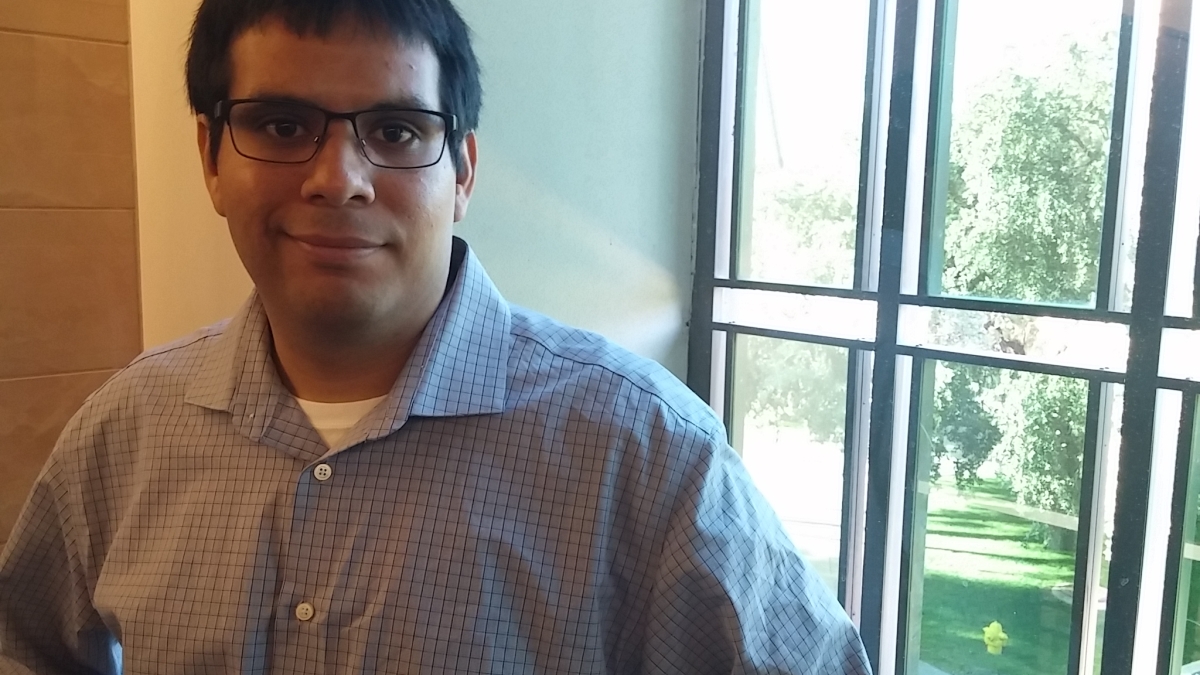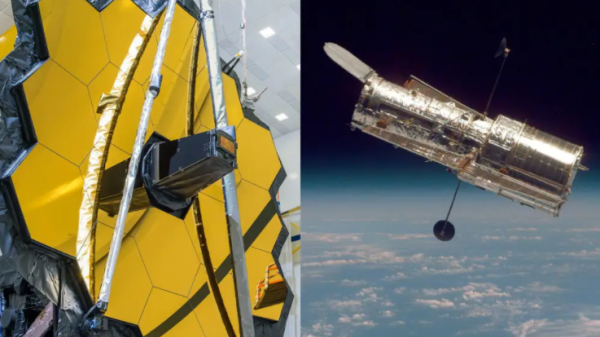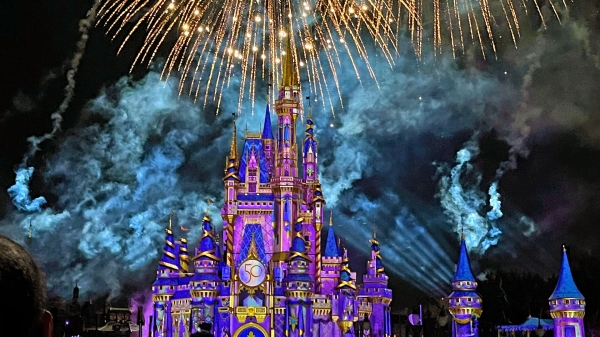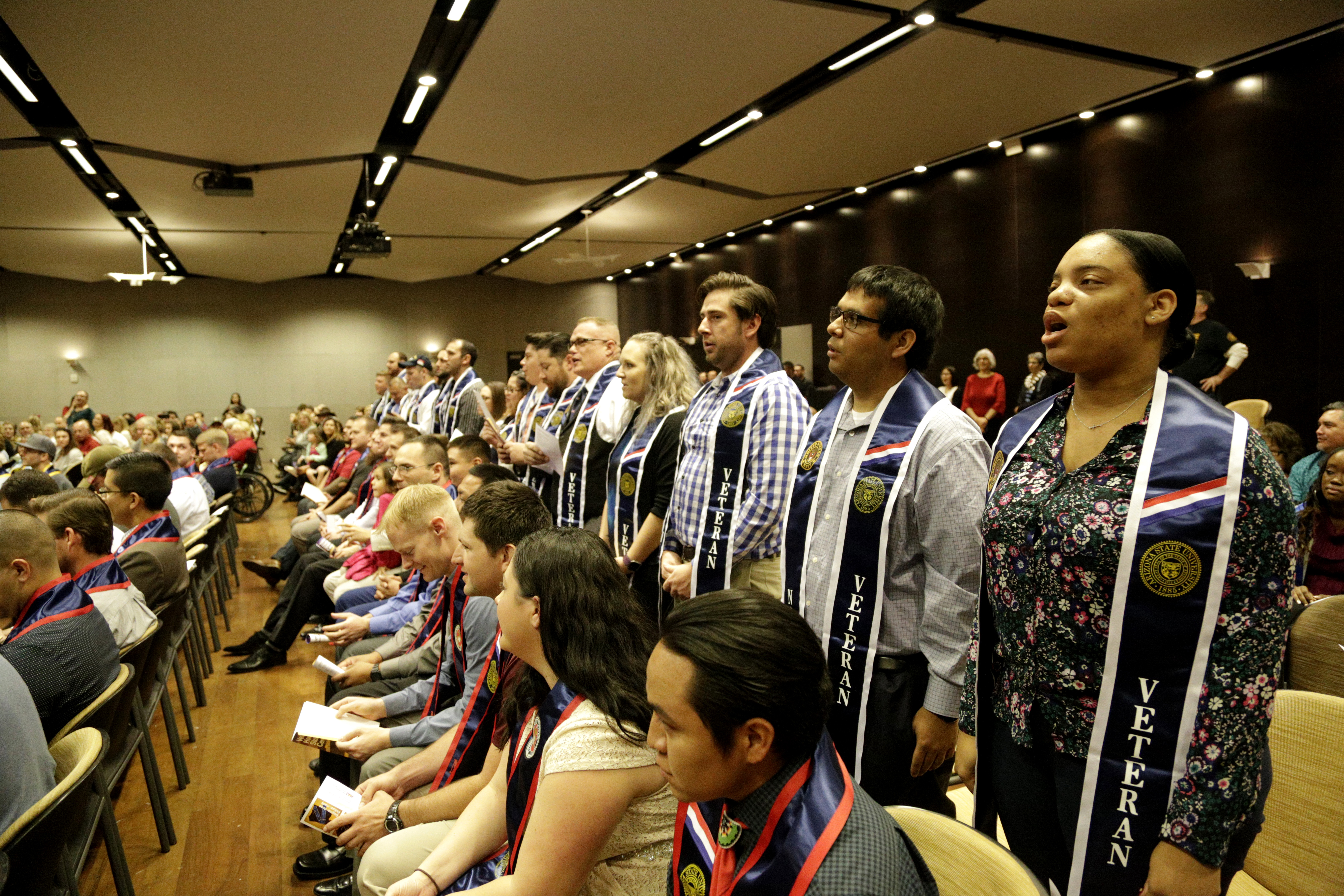Persistence, internship leads graduating ASU vet to Fortune 500 Company

Justin Arispe is graduating from the Ira A. Fulton Schools of Engineering.
Editor’s note: This is part of a series of profiles for fall 2016 commencement. See more graduates here.
Justin Arispe is resilient. Despite being rejected time and again, the U.S. Navy veteran and graduating Arizona State University student pushed forward and landed a software engineer job with one of the most respected insurance companies in the nation, USAA.
Both Google and Amazon were looking at Arispe and flew him to their company headquarters in San Francisco and Seattle, respectively, for a closer look. The computer systems engineering major made it to the very end of a grueling series of highly technical interviews but fell just short of being chosen for the jobs.
He had faced rejection before. Shortly after his 5-year Navy stint that took him across the Pacific aboard the destroyer USS McCampbell, he applied to a college of music in Massachusetts in 2011 to no avail. But this spring the tide turned when he landed an internship with USAA during an ASU job fair in the Memorial Union. Off to Texas he went this past summer and USAA liked what they saw.
“The first day of school after coming back, they gave me a call and said we’d like to make you an offer,” said Arispe, who is graduating from the Ira A. Fulton Schools of Engineering. “They were happy with my work over the summer.”
Now the El Paso, Texas native will return to his former home state in January to USAA’s company headquarters in San Antonio.
Arispe, who moved to Arizona during high school, credits his military experience with helping him gain the maturity and focus necessary to complete his bachelor’s degree.
“I feel like if I had try to do what I’m just finishing now, an engineering degree right out of high school, I would not have been successful,” he said. “I would not have had the right drive and motivation, the right kind of frame of mind of how much this really means.”
Here Arispe shares some more insight into his college experience and other perspectives.
Justin Arispe (second from the right standing) and fellow veteran sailors sing the Navy song during the Veterans Honor Stole Ceremony held in the Memorial Union on the Tempe campus, Dec. 10. ASU recognizes graduating veterans with honor stoles corresponding to their military branch of service. The stoles may be worn over academic regalia at commencement ceremonies. The stole ceremony is sponsored by the ASU Alumni Association and the Pat Tillman Veterans Center. Photo by Dan Turbyfill/ASU
Question: What was your “aha” moment, when you realized you wanted to study the field you majored in?
Answer: In the Navy I was a sonar technician. In fact, for a good chunk of time on the ship I was the lead technician for my equipment. I enjoyed learning about the systems and how they worked, but I still wanted to know more, down to the lowest levels. But that's not when I had fully decided. Because when I had first gotten out of the Navy, I actually had lined up an interview and audition for Berklee College of Music in Boston. When that came back as a rejection, I thought about what I wanted to do from then on. I thought back to how I wanted to know about electronics and computers. Since I was back in Arizona, I began researching the majors available at ASU. What drove me to computer systems engineering over computer science was that I wanted to get more in-depth with hardware and not just code. So it was a good decision for me in the end.
Q: What’s something you learned while at ASU — in the classroom or otherwise — that surprised you, that changed your perspective?
A: College was monumentally harder than anyone made it seem while I was in the Navy. College and degrees were always talked about as just filling out requirements and credits until you get your degree, then you're set. It's so much more than that. It’s just like anything else in life, you tend to get out what you put in. Even in engineering the competition is fierce. Simply having that degree doesn't get you much without doing what you can to stand out. I had to worry about keeping my GPA competitive, working on personal side projects, getting an internship, and even ended up as a lab assistant for research with the NEPTUNE grant. All of this just to get to the interview. The interview itself was another mountain to climb, and software engineering position interviews tend to be very technical.
Q: Why did you choose ASU?
A: Honestly, because I had moved back to Arizona where I attended high school and joined the Navy from. But from what I read on the degree program I feel like I didn't need to look further as I was satisfied with what it offered.
Q: What’s the best piece of advice you’d give to those still in school?
A: Try to keep in mind all the things I brought up about staying competitive but find the balance that works best for you. Everyone is different and you don't need to compare yourself to the highest achievers. Take it at your own pace but always try to push yourself a little.
Q: What was your favorite spot on campus, whether for studying, meeting friends or just thinking about life?
A: After the hell that was the combination of digital design, embedded systems, and data structures and algorithms, the embedded systems lab of brickyard engineering. This lab is only for computer systems engineering students because it has the hardware necessary for some of the courses only we have to take. It was large enough that there was always room to sit. It basically became a second home to me. Even after those courses, I did all my homework, studying and even hanging out in there for over a year.
Q: What are your plans after graduation?
A: I will be moving in late January to San Antonio, Texas to work as a software developer and integrator for USAA.
Q: If someone gave you $40 million to solve one problem on our planet, what would you tackle?
A: Self-driving cars. My capstone project explored this idea on a smaller scale. We made a lot of progress on our project over the year but there is still much more work to be done. There are so many safety and security concerns to be solved, both physically and digitally. Once this problem can be solved, our current way of life could be changed. The number of car related deaths would plummet. Most people wouldn't even need to own a car as they could just hail one like a taxi and use it only when needed. Big names and minds are currently working on this problem though, so I would say that even $40 million might not be enough.
More Science and technology

ASU receives 3 awards for research critical to national security
Three researchers in the Ira A. Fulton Schools of Engineering at Arizona State University have received grant awards under the …

Celebrating 34 years of space discovery with NASA
This year, NASA's Hubble Space Telescope (HST) is celebrating its 34th anniversary of the world's first space-based optical…

Making magic happen: Engineering and designing theme parks
The themed entertainment industry is widespread and diverse, encompassing everything from theme parks to aquariums, zoos, water…
